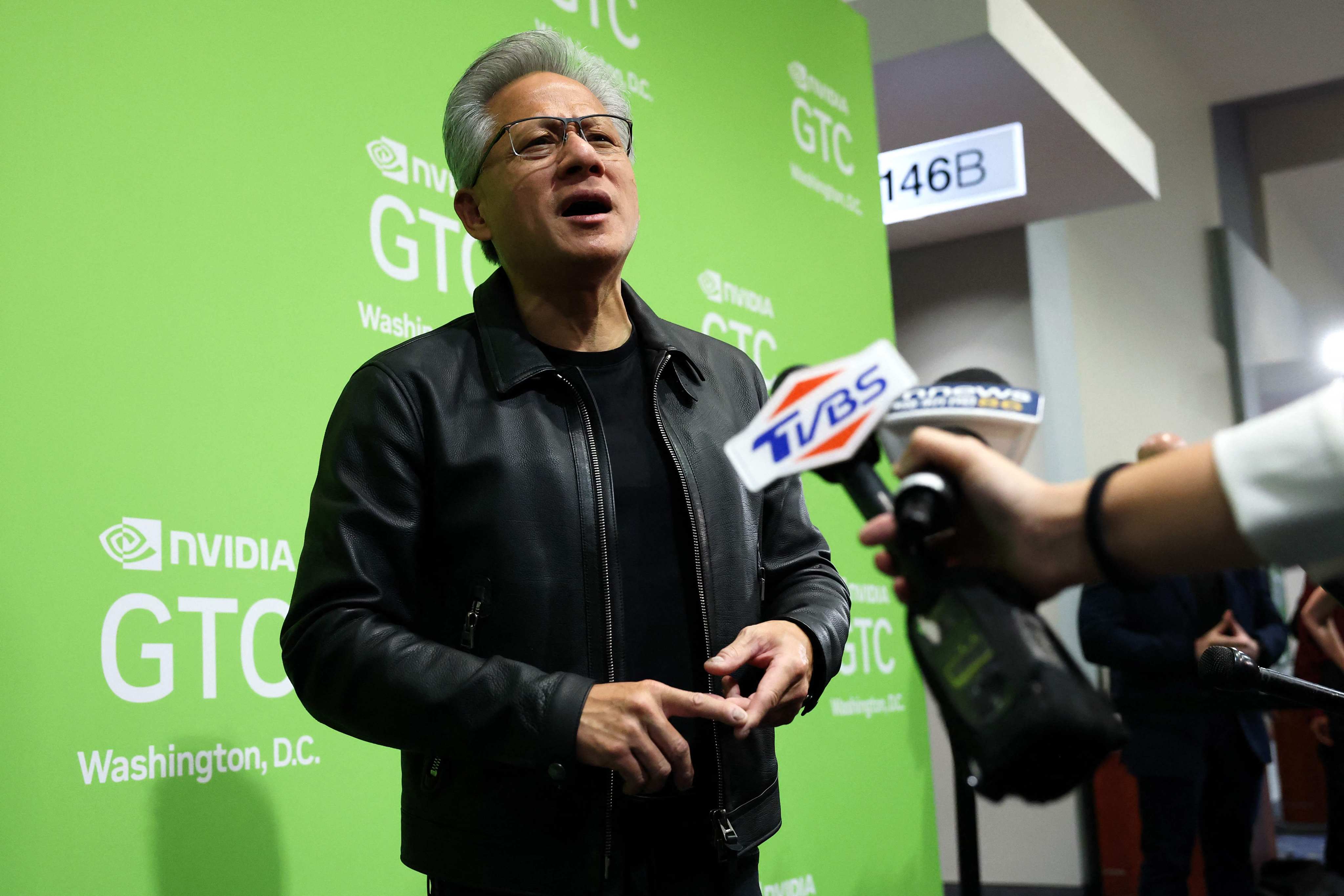Copyright scmp

Nvidia founder and CEO Jensen Huang said he remained hopeful of returning to the China market, as US President Donald Trump signalled that the company’s state-of-the-art Blackwell artificial intelligence chips could feature in his coming talks with Chinese President Xi Jinping. Speaking on the sidelines of Nvidia’s flagship GTC (GPU Technology Conference) in Washington on Tuesday, Huang said he had “100 per cent confidence in President Trump’s ability to cut a great deal for America”. He noted that Nvidia’s market share in China had fallen from 95 per cent to zero under US export restrictions and China’s downturn, and that the company’s baseline assumption now excluded China. However, he added: “If it comes back … if President Trump were able to negotiate, or if China would like us to come back, it’s going to be a huge bonus for us.” Expectations that Nvidia might resume exports of its advanced AI chips to China helped lift its share price by more than 3 per cent in pre-market trading. The stock is on track to propel the US chipmaker towards a record US$5 trillion valuation – the highest in corporate history. Huang also warned that Nvidia’s absence from China could ultimately harm the United States more than China itself, questioning the long-term logic of Washington’s export controls. Xi and Trump are due to meet in Busan, South Korea, on Thursday ahead of the Apec summit. As semiconductor disputes emerged as a key agenda item, Trump told reporters on Wednesday that he would speak with Xi about Nvidia’s “super-duper” Blackwell-based AI chip, which had been barred from sale to China under US restrictions. Nvidia’s most advanced processors have been subject to US export controls since the Biden administration. Earlier this year, the Trump administration extended the ban to include the downgraded H20 chip – a version designed specifically for China. Washington was reportedly considering resuming approvals in exchange for 15 per cent of Nvidia’s China revenue. Beijing, however, has redoubled efforts to gain self-reliance in its semiconductor supply chain, discouraging domestic companies from purchasing Nvidia while pushing home-grown alternatives. Chinese giants such as Huawei Technologies and Alibaba Group Holding, along with start-ups including MetaX and Moore Threads, all claimed their latest chips had outperformed Nvidia’s H20. Alibaba owns the South China Morning Post. AI and integrated circuits were likely to be listed as priority sectors in China’s coming 15th five-year plan (2026–2030), which is emphasising “technological innovation and independent strength”. At the 2025 GTC (GPU Technology Conference) – held for the first time in Washington – Huang said Nvidia had shipped six million Blackwell graphics processing units (GPUs) and expected a combined US$500 billion in sales from the Blackwell generation and next year’s Rubin chips, excluding Asia. That figure, he said, was “five times” the revenue of the company’s previous Hopper generation. The strong outlook pushed Nvidia’s shares up nearly 5 per cent to a record close of US$201.03. Huang also announced a series of high-profile partnerships: a US$1 billion investment in Nokia for 6G connectivity; a deal with Uber Technologies to deploy autonomous robotaxi fleets; the use of humanoid robots in Foxconn Technology Group’s Texas AI-server factory; and a collaboration with the US Department of Energy to build AI supercomputers with more than 100,000 Blackwell GPUs – a project aimed at securing “America’s leadership in AI and science”.



